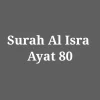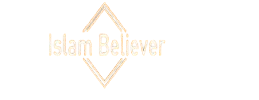Homeowners insurance, like many financial and insurance products, can be a subject of debate within Islamic jurisprudence. The permissibility of homeowners insurance in Islam hinges on several key factors.
Including the nature of the insurance contract, the type of coverage provided, and the underlying principles of risk-sharing and gambling avoidance. This article will tell you all the aspects of homeowners insurance in Islam. So, if you want to know then read the post till the end!
Understanding Insurance in Islam
According to Islamic law, financial transactions must be fair, transparent, and free from interest, uncertainty, and gambling. In essence, insurance is the collection of cash from a group of individuals. To offer financial security against prospective losses for any one of the group’s members.
This idea of risk sharing is consistent with Islamic principles of collaboration and support for one another.
Halal Aspects of homeowners insurance in Islam
Certain aspects of homeowners insurance can be considered Halal (permissible) in Islam:
-
Protection against Losses
Homeowners insurance offers coverage for property damage due to various perils, such as fire, theft, or natural disasters. This protection can be seen as permissible because it safeguards against unexpected losses that could otherwise burden the homeowner financially.
-
Liability Coverage
Homeowners insurance often includes liability coverage, which can protect the homeowner in case of legal claims for injuries or property damage caused to others on their property. This aspect aligns with Islamic principles of accountability and compensation for harm caused to others.
-
Risk-sharing
As mentioned earlier, insurance involves pooling risks, and this collective sharing of potential losses aligns with Islamic ideals of mutual assistance and solidarity.
Homeowners insurance haram aspects
On the other hand, some aspects of homeowners insurance concerns from an Islamic perspective:
-
Riba (Interest)
In conventional finance, insurance companies may invest the premiums they collect to generate returns. If these investments involve prohibited elements, such as interest, it could render the income generated from such investments as Haram (forbidden).
-
Gharar (Uncertainty):
Insurance contracts should be unambiguous to avoid uncertainty and misunderstanding. Some insurance policies might contain unclear terms, exclusions, or conditions, which can lead to Gharar and may be problematic from an Islamic standpoint.
-
Maisir (Gambling):
Insurance contracts should not involve elements of gambling, where one party gains at the expense of another’s loss based on chance. If the insurance contract resembles a gambling contract, it would be considered Haram.
Islamic Alternatives for homeowners insurance
In light of the potential concerns surrounding conventional homeowners insurance, some Islamic financial institutions offer alternative models that comply with Islamic principles. Two popular models are:
Takaful
Takaful is a cooperative form of insurance based on cooperation, shared responsibility, and the concept of donation. Participants contribute to a common pool of funds to support those who suffer losses. Surplus funds can be distributed back to participants or given to charitable causes.
Musharakah-based Insurance
This model is based on a profit-sharing or equity-sharing arrangement, where the insurer and the insured pool their funds and share profits or losses based on agreed-upon ratios.
Cheapest homeowners insurance in Islam?
To find the most affordable homeowners insurance that aligns with Islamic principles, consider the following steps:
-
Research Islamic Insurance Providers
Look for insurance companies that offer Takaful or Shariah-compliant insurance products. These companies are more likely to provide homeowners insurance that adheres to Islamic principles.
-
Get Multiple Quotes
Reach out to different Islamic insurance providers and request quotes for homeowners insurance. This will allow you to compare prices and coverage options to find the most affordable one for your needs.
-
Consider Your Coverage Needs
While seeking affordable insurance, ensure that the coverage provided meets your specific requirements. Don’t compromise on essential coverage just to get a lower price.
-
Consult with Experts
Seek advice from knowledgeable Islamic scholars or financial advisors who can guide you in selecting a suitable and affordable homeowners insurance policy that aligns with your faith.
-
Check for Discounts
Inquire about any available discounts that might help lower the premium. Some insurance companies offer discounts for various factors, such as security features in your home for insurance or bundling multiple policies.
Remember, the cheapest insurance isn’t always the best option. Striking a balance between cost and sufficient coverage is crucial.
Best homeowners insurance in Islam
The best homeowners insurance in Islam would be a Shariah-compliant Takaful policy. It aligns with Islamic principles of cooperation, and risk-sharing, and avoids Riba (interest), Gharar (uncertainty), and Maisir (gambling). Seek endorsements from reputable Islamic scholars or Shariah boards to ensure compliance.
Summary
In conclusion, the permissibility of homeowners insurance in Islam depends on the specific features of the insurance contract and its adherence to Islamic principles. We hope you understand homeowners insurance in Islam after reading the post.
Islamic alternatives such as Takaful and Mudarabah-based insurance provide options for those seeking Sharia-compliant coverage. To guarantee that their financial actions are consistent with their religious values, people should make educated judgments based on advice from qualified academics.





